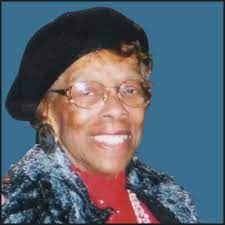A Pioneer in Art Therapy

Dr. Lucille Venture, photo credit – American Art Therapy Association
The field of Art Therapy, a mental health and human services profession, is a relatively new specialty developed in the late 1960s and early 1970s. One of the vanguards was Union alumna, Lucille Venture. Dr. Venture was the first Ph.D. in Art Therapy (Union Ph.D. ’77), the first African American Art Therapist, and the first President of the Maryland Art Therapy Association (MATA), a group committed to the growth, education, standards and professional development of the emerging field. In addition, she led the way for multiculturalism and de-stigmatizing mental illness in her approach to art therapy. (Source: MATA)
Describing art therapy in a 1976 interview in the Baltimore Afro-American newspaper, Dr. Venture said “Art therapy is the use of nonverbal creative process using paints, pastels, clay, etc., as communications for aiding in problem-solving, healing and individual growth. Spontaneous art products are expressions of thoughts and feelings at both the conscious and unconscious levels. Eliciting discussions from the individuals about these pictures links the imaginative factor to conscious decision-making.”
Pat Allen (Ph.D. ‘86), another Union alumna, is part of a movement in art therapy researching Venture’s life and career.
“Venture was indeed involved in the nascent profession from its very beginning. She was a trailblazer who served tirelessly on the standards committee of the American Art Therapy Association,” Allen said. “She was an activist at an inflection point when definitions of the field were being formed. Regrettably, Venture is unknown to most art therapists.”
Allen believes Venture’s insights are as relevant today as when she wrote them in 1977. For this reason, she is working to share Venture’s dissertation “The Black Beat in Art Therapy Experience,” along with contextualizing essays by BIPOC art therapists and others who knew Venture.
“Venture’s insights into culturally diverse and poor populations are applicable in the present day. She and her work deserve much more recognition, especially in today’s discussion of racial and economic inequality and social justice,” Allen said.
From reading Venture’s letters and papers, Allen is convinced that her insights at the time didn’t receive the regard they deserved.
“For instance, within the national group for art therapists, Venture argued that requiring a master’s degree as the entry point might prohibit low-income and individuals of color, who might be unable to afford to continue their education for an additional two years after college, from practicing. Venture’s position was ignored,” Allen said. “There was a drive to position the new field, mostly made up of white women, to maximize prestige and status within the larger field of mental health care.”
Venture’s work has had a profound effect on Allen. “I found her dissertation sparked an epiphany for me. Her writings had a searing effect on me when a colleague shared them with me a scant five years ago. That so many present-day art therapy students haven’t been introduced to her work is something I hope to be a part of changing.”
In 2017, the American Art Therapy Association posthumously awarded Dr. Venture The Multicultural Legacy Award.
“Art Therapy, along with the wider field of mental health care, has begun to reckon with white supremacy, systemic racism, and the need to revisit disregarded points of view. In honor of Dr. Venture and others like her, may we all dedicate our efforts to a more just future for everyone,” Allen said.
Learn more about Dr. Venture and her role as a clinician, educator, mentor and social justice advocate.
______________________________________________________________________________
Union is a global leader in providing higher education degrees for the adult learner. Your Goals. Your Success. Your Union. We’ve Got U! Visit myunion.edu to start your new career.